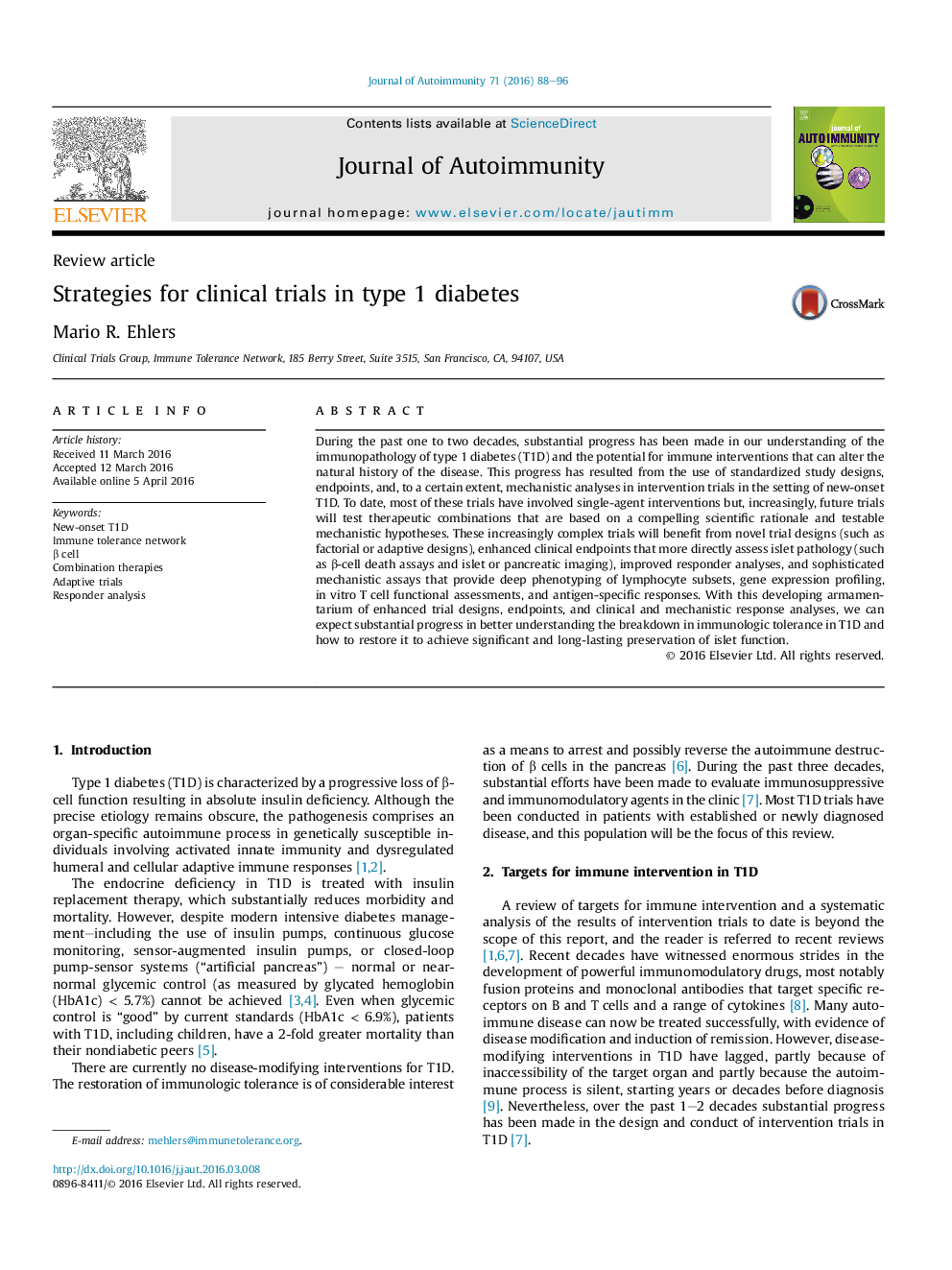| Article ID | Journal | Published Year | Pages | File Type |
|---|---|---|---|---|
| 3367660 | Journal of Autoimmunity | 2016 | 9 Pages |
•There are currently no disease-modifying interventions for the treatment of T1D.•Standardized trial designs have aided evaluation of immune interventions for T1D.•Future trials will evaluate therapeutic combinations with testable mechanistic hypotheses.•We need novel trial designs and endpoints that directly assess β-cell pathology.•Analyses include lymphocyte phenotyping, gene expression, and antigen-specific responses.
During the past one to two decades, substantial progress has been made in our understanding of the immunopathology of type 1 diabetes (T1D) and the potential for immune interventions that can alter the natural history of the disease. This progress has resulted from the use of standardized study designs, endpoints, and, to a certain extent, mechanistic analyses in intervention trials in the setting of new-onset T1D. To date, most of these trials have involved single-agent interventions but, increasingly, future trials will test therapeutic combinations that are based on a compelling scientific rationale and testable mechanistic hypotheses. These increasingly complex trials will benefit from novel trial designs (such as factorial or adaptive designs), enhanced clinical endpoints that more directly assess islet pathology (such as β-cell death assays and islet or pancreatic imaging), improved responder analyses, and sophisticated mechanistic assays that provide deep phenotyping of lymphocyte subsets, gene expression profiling, in vitro T cell functional assessments, and antigen-specific responses. With this developing armamentarium of enhanced trial designs, endpoints, and clinical and mechanistic response analyses, we can expect substantial progress in better understanding the breakdown in immunologic tolerance in T1D and how to restore it to achieve significant and long-lasting preservation of islet function.
